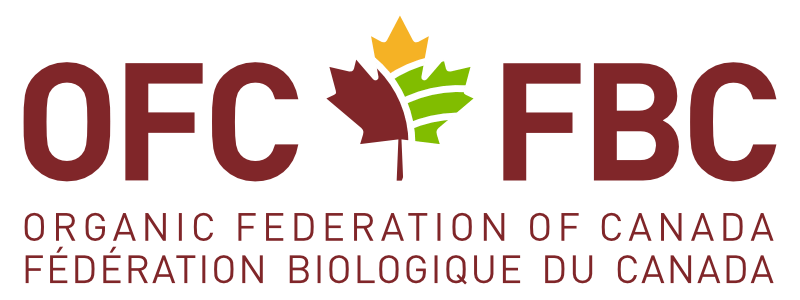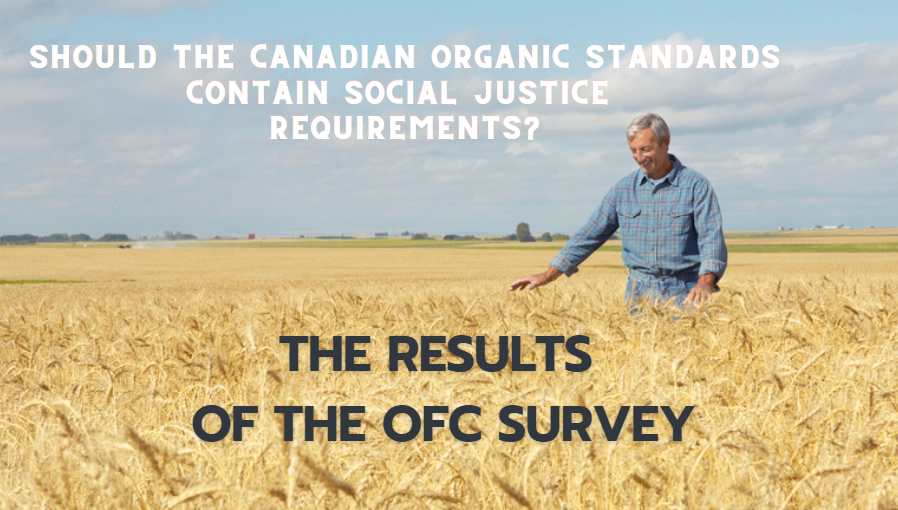
AAFC funds the review of the Canadian Organic Standards.
But organic producers are facing new challenges: seed developers will not have to identify gene-edited seeds not including novel traits.
On May 3, 2023, Minister Bibeau announced that the government will fund the revision of the Canadian Organic Standards (COS). The COS must be updated every five years to include the latest research-based environmental practices while taking into account best practices for climate change mitigation.
The organic sector welcomes this announcement and the OFC will be submitting the application to Agriculture and Agri-Food Canada’s Agri-Assurance program in the near future.
OFC also reminds that all organic farmers and stakeholders are invited to submit requests for modifications to the COS now!
Visit the OFC website, under the
2025 Review of the Canadian Organic Standards menu
to download the appropriate forms and submit your requests.
New challenges for organic producers
No mandatory identification of some GE seeds
The Canadian Food Inspection Agency has issued Directive 2009.09 on Plants with Novel Traits (PNTs). This directive states that there is no need to obtain CFIA authorization when a genetically modified seed does not include a novel trait.
This directive states that: If a plant is not a PNT, it is not subject to Part V of the Seeds Regulations and therefore does not require notification and authorization from the CFIA prior to its release into the environment. The plant may be released in Canada, subject to any other applicable requirements (e.g., authorizations for food and feed use, or registration of the variety).
Plants from gene-edited seed are considered to lack novel traits if they contain no foreign DNA, have no induced pesticide tolerance (such as glyphosate resistance), and are said to pose no environmental risk. Plant breeders will use their own discretion to decide whether the seed they develop and release contains a novel trait.
Gene-edited seed without novel traits will not be listed in government directories of genetically modified products. The organic sector opposes this lack of regulation because genetically engineered seed is not allowed under organic management and according to the Canadian Organic Standards, gene-edited seed with CRISPR technique is considered genetically engineered and therefore not permitted.
In response to the concerns of the organic sector, AAFC established an industry-government technical committee to help maintain market transparency in the seed sector. This technical committee, which included members from government, the biotech industry and the organic sector, held multiple meetings and issued a report proposing measures to identify all types of genetically modified seed. However, the recommendations of this report did not satisfy the organic representatives.
Minister Bibeau announced on May 3 that she accepts the key recommendations of the industry-government technical committee, which recommends
- establishing a government-industry steering committee on transparency of plant breeding innovations to facilitate discussions as genetically modified products are introduced into the marketplace;
- expansion of the Seeds Canada Database on transparency of Canadian varieties to include data on every seed variety released in Canada;
- this database will be federally monitored to ensure it is complete.
The organic sector recognizes the effort made by Minister Bibeau but remains skeptical about the effectiveness of the Seeds Canada database because breeders are not obliged to register and identify their genetically modified seed varieties that do not contain novel traits.
But Bibeau says she is confident that breeders will cooperate and declare the gene-edited status of all their products in the Seeds Canada database.
But how do we know what is not declared given that some breeders may want to protect their trade secrets and property rights?
Given the complexity of the seed industry value chain, the organic sector will put in place procedures and tools to help producers identify genetically engineered seeds that are prohibited under organic management and will closely monitor the database project promoted by Minister Bibeau while continuing to require that all genetically engineered seeds, with or without novel traits, be mandatorily identified. The genetic heritage of seeds must be protected.
Growers, particularly organic farmers, should have the right to know if they are planted genetically modified seed.










